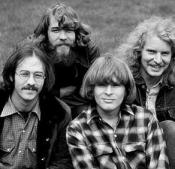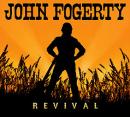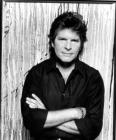Met myself a-coming, county welfare line
I was feeling strung out, hung out on the line
Saw myself a-going down to war in June
All I want, all I want is to write myself a tune
Wrote a song for everyone
Wrote a song for truth
Wrote a song for everyone
And I couldn't even talk to you
Got myself arrested, wound me up in jail
Richmond 'bout to blow up, communication failed
If you see the answer, now's the time to say
All I want, all I want, is to get you down to pray
Wrote a song for everyone
Wrote a song for truth
Wrote a song for everyone
And I couldn't even talk to you
Wrote a song for everyone
Wrote a song for truth
Wrote a song for everyone
And I couldn't even talk to you
Saw the people standing thousand years in chains
Somebody said it's different now, look, it's just the same
Pharaohs spin the message, round and round the truth
They could have saved a million people, how can I tell you?
Wrote a song for everyone
Wrote a song for truth
Wrote a song for everyone
And I couldn't even talk to you
Wrote a song for everyone
Wrote a song for truth
Wrote a song for everyone
And I couldn't even talk to you
Wrote a song for everyone
Wrote a song for truth
Wrote a song for everyone
And I couldn't even talk to you
I was feeling strung out, hung out on the line
Saw myself a-going down to war in June
All I want, all I want is to write myself a tune
Wrote a song for everyone
Wrote a song for truth
Wrote a song for everyone
And I couldn't even talk to you
Got myself arrested, wound me up in jail
Richmond 'bout to blow up, communication failed
If you see the answer, now's the time to say
All I want, all I want, is to get you down to pray
Wrote a song for everyone
Wrote a song for truth
Wrote a song for everyone
And I couldn't even talk to you
Wrote a song for everyone
Wrote a song for truth
Wrote a song for everyone
And I couldn't even talk to you
Saw the people standing thousand years in chains
Somebody said it's different now, look, it's just the same
Pharaohs spin the message, round and round the truth
They could have saved a million people, how can I tell you?
Wrote a song for everyone
Wrote a song for truth
Wrote a song for everyone
And I couldn't even talk to you
Wrote a song for everyone
Wrote a song for truth
Wrote a song for everyone
And I couldn't even talk to you
Wrote a song for everyone
Wrote a song for truth
Wrote a song for everyone
And I couldn't even talk to you
Lingua: Italiano
Traduzione italiana / Italian translation / Traduction italienne / Italiankielinen käännös:
Riccardo Venturi, 24-5-2022 10:52
Due parole del traduttore. Le motivazioni che spinsero John Fogerty a scrivere questa canzone nel 1969 sono spiegate nell'introduzione in inglese; si tratta, insomma, di una specie di reazione ai problemi familiari di una giovane coppia dell'epoca (la moglie di John Fogerty, per completare la cronaca, si chiamava Martha Paiz ed ebbe con Fogerty altri due figli prima di divorziare negli anni '70). Una precisazione sul fatto che Fogerty si rivedesse “andare alla guerra in giugno”: il ragazzo, allora ventunenne, ricevette effettivamente la “cartolina” nel giugno del 1966. Lo stesso giorno, si presentò ad un centro reclute per la Riserva, che lo arruolò immediatamente per l'addestramento -svolto poi a Fort Bragg, Fort Knox e Fort Lee. Completò l'addestramento nel luglio del 1967, per poi servire come riservista part-time fino al congedo definitivo nel 1968. Insomma, fortunatamente per lui, in Vietnam non mise piede. [RV]
Riccardo Venturi, 24-5-2022 10:52
Due parole del traduttore. Le motivazioni che spinsero John Fogerty a scrivere questa canzone nel 1969 sono spiegate nell'introduzione in inglese; si tratta, insomma, di una specie di reazione ai problemi familiari di una giovane coppia dell'epoca (la moglie di John Fogerty, per completare la cronaca, si chiamava Martha Paiz ed ebbe con Fogerty altri due figli prima di divorziare negli anni '70). Una precisazione sul fatto che Fogerty si rivedesse “andare alla guerra in giugno”: il ragazzo, allora ventunenne, ricevette effettivamente la “cartolina” nel giugno del 1966. Lo stesso giorno, si presentò ad un centro reclute per la Riserva, che lo arruolò immediatamente per l'addestramento -svolto poi a Fort Bragg, Fort Knox e Fort Lee. Completò l'addestramento nel luglio del 1967, per poi servire come riservista part-time fino al congedo definitivo nel 1968. Insomma, fortunatamente per lui, in Vietnam non mise piede. [RV]
Ho scritto una canzone per tutti
Mi son ritrovato in fila per i sussidi comunali, [1]
Mi sentivo proprio di fuori, stavo là in fila
E mi vedevo andare alla guerra in giugno,
Tutto quel che voglio è scrivermi una musica
Ho scritto una canzone per tutti
Ho scritto una canzone per la verità
Ho scritto una canzone per tutti
E non ti potevo manco parlare
Mi son fatto arrestare, mi hanno sbattuto in galera,
Richmond stava per esplodere [2], son saltate le comunicazioni,
Se vedi la risposta, ora è il momento di parlare
Tutto quel che voglio è metterti in ginocchio a pregare
Ho scritto una canzone per tutti
Ho scritto una canzone per la verità
Ho scritto una canzone per tutti
E non ti potevo manco parlare
Ho scritto una canzone per tutti
Ho scritto una canzone per la verità
Ho scritto una canzone per tutti
E non ti potevo manco parlare
Ho visto la gente incatenata per mille anni,
Qualcuno ha detto che ora è diverso, ma guarda, è la stessa cosa
I faraoni fanno propaganda e girano e rigirano attorno alla verità,
Avrebbero potuto salvare un milione di persone, come te lo devo dire?
Ho scritto una canzone per tutti
Ho scritto una canzone per la verità
Ho scritto una canzone per tutti
E non ti potevo manco parlare
Ho scritto una canzone per tutti
Ho scritto una canzone per la verità
Ho scritto una canzone per tutti
E non ti potevo manco parlare
Ho scritto una canzone per tutti
Ho scritto una canzone per la verità
Ho scritto una canzone per tutti
E non ti potevo manco parlare
Mi son ritrovato in fila per i sussidi comunali, [1]
Mi sentivo proprio di fuori, stavo là in fila
E mi vedevo andare alla guerra in giugno,
Tutto quel che voglio è scrivermi una musica
Ho scritto una canzone per tutti
Ho scritto una canzone per la verità
Ho scritto una canzone per tutti
E non ti potevo manco parlare
Mi son fatto arrestare, mi hanno sbattuto in galera,
Richmond stava per esplodere [2], son saltate le comunicazioni,
Se vedi la risposta, ora è il momento di parlare
Tutto quel che voglio è metterti in ginocchio a pregare
Ho scritto una canzone per tutti
Ho scritto una canzone per la verità
Ho scritto una canzone per tutti
E non ti potevo manco parlare
Ho scritto una canzone per tutti
Ho scritto una canzone per la verità
Ho scritto una canzone per tutti
E non ti potevo manco parlare
Ho visto la gente incatenata per mille anni,
Qualcuno ha detto che ora è diverso, ma guarda, è la stessa cosa
I faraoni fanno propaganda e girano e rigirano attorno alla verità,
Avrebbero potuto salvare un milione di persone, come te lo devo dire?
Ho scritto una canzone per tutti
Ho scritto una canzone per la verità
Ho scritto una canzone per tutti
E non ti potevo manco parlare
Ho scritto una canzone per tutti
Ho scritto una canzone per la verità
Ho scritto una canzone per tutti
E non ti potevo manco parlare
Ho scritto una canzone per tutti
Ho scritto una canzone per la verità
Ho scritto una canzone per tutti
E non ti potevo manco parlare
[1] Più esattamente, si tratterebbe dei “servizi di assistenza sociale della Contea”.
[2] John Fogerty è nativo di Berkeley, in California: vi è nato il 28 maggio 1945, e cogliamo l'occasione per fargli gli auguri per i suoi oltremodo prossimi 77 anni. Si tratta, tra l'altro, proprio di quella Berkeley, sede dell'Università dove, all'epoca della canzone, insegnavano ben nove premi Nobel, e dove si svolse uno dei più importanti movimenti culturali del mondo, contro il razzismo e la guerra. La Richmond nominata in questa canzone non è la grande città capitale della Virginia, bensì una città di circa 110.000 abitanti sulla baia di San Francisco e che, in pratica, ne è un suo sobborgo storicamente proletario, industriale e portuale.
[2] John Fogerty è nativo di Berkeley, in California: vi è nato il 28 maggio 1945, e cogliamo l'occasione per fargli gli auguri per i suoi oltremodo prossimi 77 anni. Si tratta, tra l'altro, proprio di quella Berkeley, sede dell'Università dove, all'epoca della canzone, insegnavano ben nove premi Nobel, e dove si svolse uno dei più importanti movimenti culturali del mondo, contro il razzismo e la guerra. La Richmond nominata in questa canzone non è la grande città capitale della Virginia, bensì una città di circa 110.000 abitanti sulla baia di San Francisco e che, in pratica, ne è un suo sobborgo storicamente proletario, industriale e portuale.
×
![]()








Album: Green River - 1969
John Fogerty said he wrote this song about his (now) ex-wife about 2 years after they had a child together. Quote from John Fogerty:
I looked at my piece of paper and changed gears. How many great leaders can’t even manage their own families? So I went with that.
“Pharaohs spin the message/Round and round and true/Richmond’s about to blow up” referring to nearby Richmond, California. It was actually a true emotion that took on a larger meaning. It’s still a special song in the sense that it keeps my feet on the ground. You sit and write these songs, yet you try to talk to your own son and daughter and maybe you’re totally inadequate, trying to explain life to child. We used to record our album very quickly and I remember finishing five different songs in one afternoon. The fifth one didn’t work, and that was “Wrote A Song For Everyone.” I had to start over on that one.“